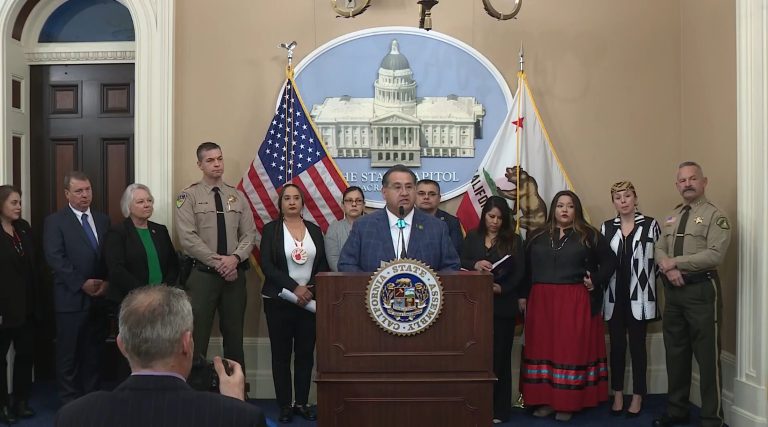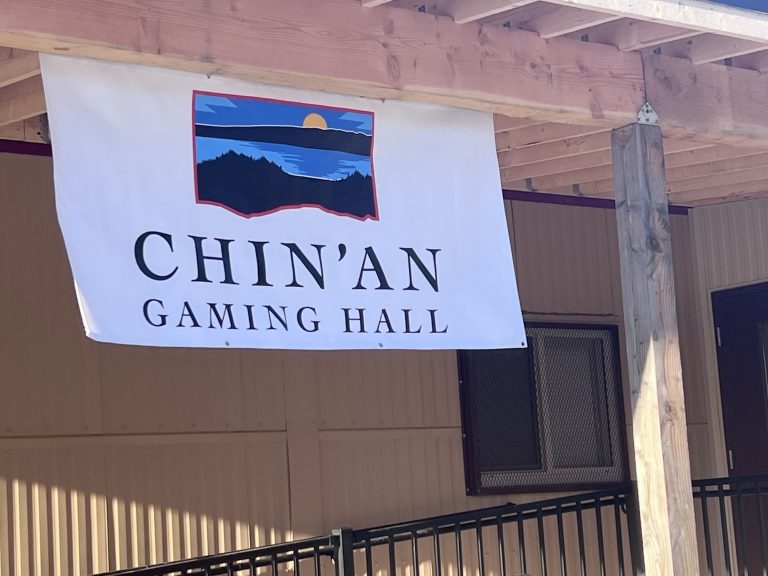Podcast: Play in new window | Download | Embed
Click here for the Monday, December 11 National Native News
Tribal leaders from across the country say substance use and mental health issues are priorities for the federal government to address with tribes.
The topic was part of the agenda Thursday at the White House Tribal Nations conference at the Interior Department.

Associate Attorney General Vanita Gupta.
During a panel on substance use with tribal leaders, Associate Attorney General Vanita Gupta told the audience the Department of Justice (DOJ) is learning from tribes.
She says that’s helping them adjust what they’re doing wrong and will fill gaps that supports tribal solutions.
A concern among leaders is combating the fentanyl crisis, which Gupta says the agency is working hard on.
“The justice department is obviously in the fentanyl crisis, doing everything that we can to cut off the supply chain cartels in Mexico and companies in China etc. But we are also taking what I heard very loudly and clearly the kind of prevention intervention, recovery treatment approach to and we have to support the whole bandwidth and it won’t be done through the justice department alone. It will be done in coordinating with all of the agencies and many more here at the federal government. “
Stephen Roe Lewis, the governor of the Gila River Indian Community in Arizona, says substance use is impacting tribal communities across the country hard, including in his home state.
“In the state of Arizona, the state doesn’t have the resources to address this wide spread issue, it has to do with enforcement. It has to do with also providing the resources, supporting the tribes. Of course, in Arizona there’s 22 tribes. Supporting the tribes with those resources to address the horrible surge of drug and alcohol abuse. And all the social issues, and it’s not just that too. It’s not just those individuals, our loved ones, our relatives. It’s the families as well. And it’s also providing them those wraparound services, and the housing as well. When you have the state, even though it’s a state issue, but it’s using federal funds, Medicaid funds, and Indian health service resources as well. ”
Sharon Hildebrand, Vice President of Tanana Chiefs Conference in Alaska, says one thing that can help is recognizing Indian Country in Alaska.
“We feel it’s really important that the DOJ addresses the issue of recognizing Indian country because in their funding formulas, Alaska is not recognized as Indian Country. So it’s important that we bring that forward in terms of funding, not only for Alaska, but for everyone in terms of equity.”
The two-day summit was an opportunity for tribal leaders to engage directly with federal and White House officials.
Thursday afternoon leaders met with a number of agency officials in private meetings.
Before the summit concluded there were panels on Native families and children, Native languages and cultures, and tribal economic development.

An open field on the Wind River Reservation. (Photo: Hannah Habermann / Wyoming Public Media)
The Wind River Food Sovereignty Project is working to address food insecurity and lack of access to healthy food on the reservation.
It’s now one step closer to that goal.
Wyoming Public Radio’s Hannah Habermann has more.
After five years of connecting people to the land through food, the Wind River Food Sovereignty Project is finally getting some land of its own.
The group helps to increase the supply of healthy and affordable food on the Wind River Reservation by supporting local food production.
The 30-acre property is in Fort Washakie and will be home to a demonstration farm and learning garden.
Kelly Pingree is an enrolled member of the Shoshone-Bannock Tribes and is one of the project’s co-directors.
She says she hopes the land can also be a healing and relaxing space.
“Gardening always made me happy. You know, I don’t know, just planting something just makes you happy. Watching it grow makes you happy.”
The group also hopes to build a walking path around the property and plans to host educational classes about growing and preserving Indigenous foods.
The Wind River Food Sovereignty Project recently acquired a 30-acre plot of land on the Wind River Reservation – and they’re planning to use the space to help support local food production and education.
The space will be home to a learning garden and will host programming focused on growing and preserving Indigenous foods.
There will also be irrigated plots of land available for those who want to produce food for the community.
Livy Lewis is one of the project’s co-directors.
She says they plan to build food storage and a commercial kitchen.
“One of our end hopes is that we can get locally produced food into some of the institutions, like the school districts and casino restaurants, Senior Living.”
Wind River Food Sovereignty Project has also provided grants and training to local cattle ranchers, hunter-gatherers, farmers, and other food producers – and they run farmers markets on the reservation in the summer and winter.
Get National Native News delivered to your inbox daily. Sign up for our newsletter today.



